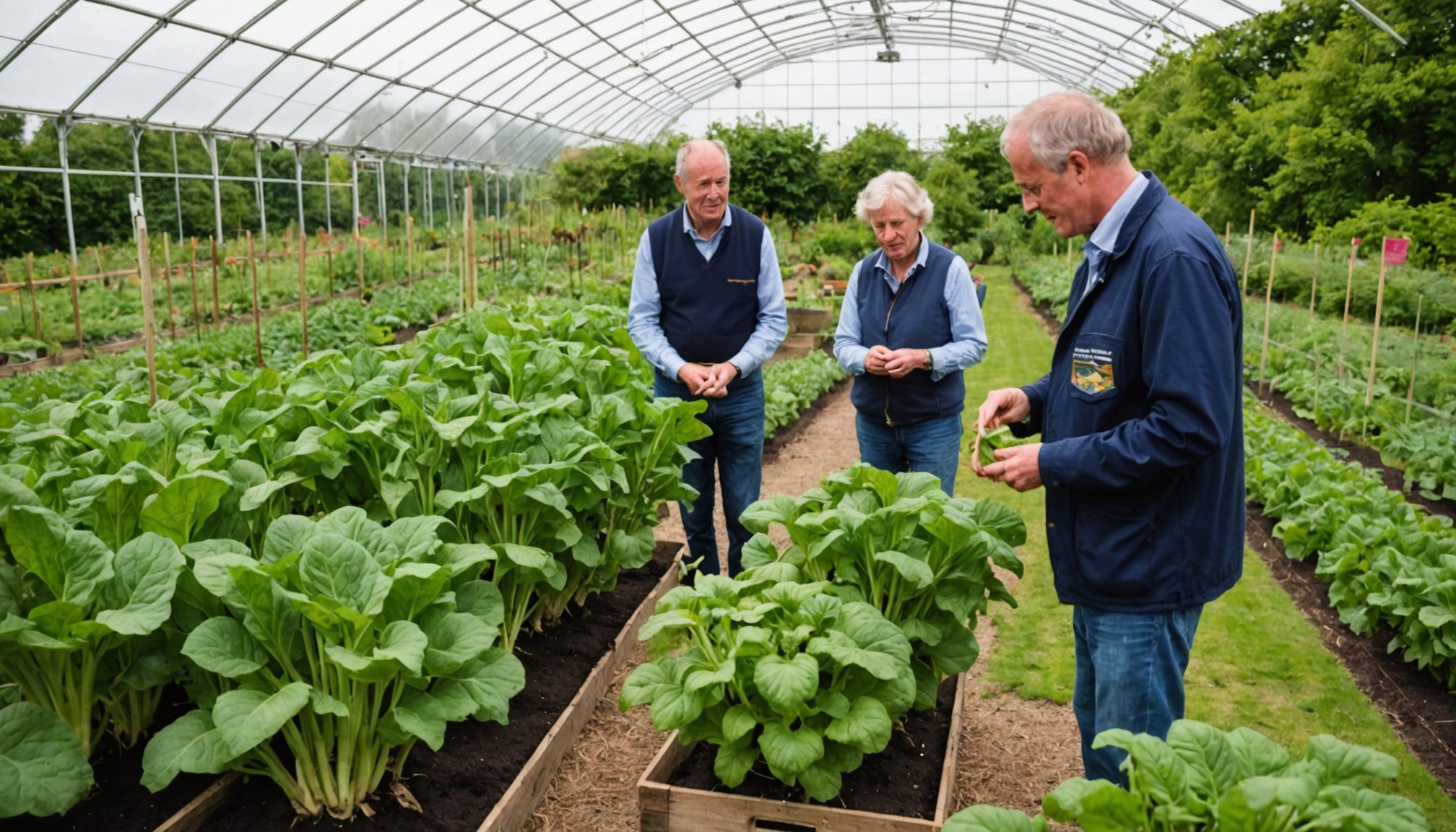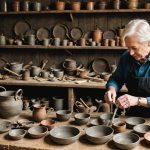Overview of UK Botanical Gardens
Delving into the enchanting world of UK botanical gardens, one cannot overlook their rich history and cultural significance. Originating in the 16th century, these gardens have blossomed into vital hubs for botanical research and preservation. Their enduring appeal lies in the unique combination of history, science, and sheer natural beauty they offer.
Botanical gardens in the UK are crucial for preservation and education, playing a pivotal role in safeguarding plant species and cultivating awareness. They act as living libraries, harbouring an astounding diversity of plant life, including heirloom vegetables. This emphasis on conservation not only protects biodiversity but also fosters public understanding of the natural world. Engaging educational programmes ensure these gardens remain at the forefront of botanical literacy.
Also to see : Discover Top Destinations for Immersive Experiences in British Theater History
When exploring the best gardens the UK has to offer, certain names stand out for their dedication to heirloom vegetables. The Royal Botanic Gardens, Kew, is a world-renowned treasure, offering extensive collections and enlightening tours that captivate visitors. Similarly, the Lost Gardens of Heligan and the Royal Horticultural Society’s Wisley Garden provide meticulously curated spaces that focus on heritage plant varieties. Each of these gardens offers unique insights into the nation’s horticultural heritage through garden tours that blend educational vigour with visual splendour.
Expert Tours on Heirloom Vegetable Cultivation
Participating in expert-led tours offers a unique opportunity to delve into the world of heirloom vegetable cultivation. These tours are conducted in various renowned gardens, each providing an enriching experience led by seasoned professionals. Attendees not only witness the vibrancy of gardening but also engage in gardening workshops that reveal the nuanced techniques essential for cultivating these treasured vegetables.
This might interest you : Explore Interactive Workshops on Britain”s Coin Minting History: A Tourist”s Guide
During the tours, enthusiasts can explore a diverse range of heirloom vegetables. From the striking Cherokee Purple tomatoes to the vibrant Dragon Carrots, each vegetable represents a piece of history and biodiversity. The tours highlight the distinctive characteristics and cultivation needs of these heirlooms, providing insight into their preservation and culinary uses.
One of the primary benefits of these expert-led tours is the educational value they offer. Participants gain a wealth of practical knowledge, from seed-saving methods to pest control strategies, enhancing their gardening skills. The tours empower attendees with the confidence to establish their own heirloom gardens, contributing to biodiversity conservation efforts.
Through engaging interaction with gardening experts, these tours serve as a gateway to the sustainable and rewarding practice of heirloom vegetable cultivation, encouraging both novice and seasoned gardeners to expand their knowledge and embrace gardening’s joys.
Featured Botanical Gardens
Within the realm of botanical highlights, certain gardens stand out due to their unique garden features and impact on the community.
Garden Name 1
Focusing on the cultivation of heirloom vegetables, Garden Name 1 is renowned for its preservation of rare plant varieties. The garden hosts a variety of heirloom tomatoes, beans, and squashes, each offering a glimpse into historical agriculture. Visitors are invited to explore these notable gardens through organized tours, which provide insights into sustainable farming practices. Tour schedules and ticket rates are available upon request, ensuring a seamless experience for garden enthusiasts.
Garden Name 2
Garden Name 2 distinguishes itself with elaborate setups highlighting heirloom vegetables. Its unique attributes include a vast collection of antique seed species. Guided tours are available, offering expert insights into the botanical contributions of heirlooms to modern agriculture. This garden is notably accessible, with amenities such as wheelchair-friendly paths and guided assistance, creating an inclusive experience for all.
Garden Name 3
Offering an array of special programs and events dedicated to heirloom cultivation, Garden Name 3 plays a significant role in community education. Their events encourage community involvement, allowing volunteers to partake in cultivation workshops. Customer reviews often praise the comprehensive tours, celebrating both the learning experience and the garden’s commitment to heritage preservation.
Practical Tips for Heirloom Vegetable Cultivation
Embarking on the journey of growing heirloom vegetables offers both challenge and reward. Start with beginner-friendly choices like Brandywine tomatoes or Chioggia beets. Both varieties adapt well to different conditions, making them ideal for novices.
Effective cultivation techniques are crucial for success. Begin by understanding your soil. Heirloom varieties often thrive in rich, well-drained soil. Consider performing a soil test to balance nutrients and pH levels. Implementing crop rotation also helps keep the soil healthy.
Consistent watering is vital. Unlike hybrids, heirlooms may require careful attention to moisture content. Use mulch around your plants to retain moisture and control weeds.
When sourcing heirloom seeds in the UK, opt for reliable resources. Organisations like the Heritage Seed Library or the Real Seed Catalogue offer diverse selections. Purchasing through reputable outlets ensures you’re planting genuine heirloom seeds, preserving genetic diversity for future generations.
Remember, growing heirloom vegetables is as much about the journey as the harvest. Embracing these gardening tips creates a rewarding experience, connecting you to historical roots while enjoying fresh, unique produce. As you become more familiar with these techniques, you’ll gradually extend your plant selection and enhance your gardening expertise.
Resources and Additional Learning Opportunities
For those keen to deepen their understanding of heirloom gardening, several gardening resources are essential. Start with curated lists of books like “The Heirloom Life Gardener” and “Seed to Seed,” which provide practical guidance and historical perspectives on preserving plant legacy. Additionally, scholarly articles such as “The Value of Heirloom Plants” offer insights into sustainable practices.
To supplement reading, educational programs and hands-on workshops present invaluable experiences. UK botanical gardens host events that blend theory with practice, allowing enthusiasts to learn directly from experts. Key upcoming workshops focus on soil health and seed-saving techniques, vital for maintaining the genetic diversity of heirloom varieties.
Online groups and forums serve as vibrant communities for heirloom vegetable enthusiasts. Platforms such as Reddit’s Heirloom Gardening community and specific Facebook groups connect you with like-minded individuals, where sharing tips and experiences enhances your learning journey. These forums provide an excellent opportunity for engaging dialogues on challenges faced and triumphs achieved in heirloom gardening.
With these resources and programs, you can embark on a comprehensive educational journey that combines both theoretical knowledge and practical skills, ensuring a robust and sustainable approach to heirloom gardening.
Visitor Information and FAQs
Visiting a botanical garden in the UK is an enchanting experience, with each garden offering its unique blend of nature and history. To ensure a seamless visit, here are essential details:
General visiting hours for gardens vary, but most are open between 10 AM and 6 PM. It’s advisable to check specific details on the garden’s website to accommodate any seasonal changes. Ticketing often varies by garden, with some offering family passes and reduced rates for seniors or students. Group tours typically require advance booking and may provide discounted rates, enhancing the discovery of diverse plant worlds.
For those particularly interested in heirloom vegetable tours, these events are much anticipated. Visitors frequently ask about the best time to visit for these tours. The peak season is usually late summer to early autumn, when vegetables are at their ripest and most vibrant. Detailed schedules can be accessed through the FAQ sections of each garden, offering greater insight into various events.
Regarding garden accessibility, most UK botanical gardens strive to be inclusive. They offer wheelchair access, rest areas, and guided paths for those with mobility restrictions. For further assistance or FAQs, it’s recommended to contact the visitor information centers of the respective gardens.











